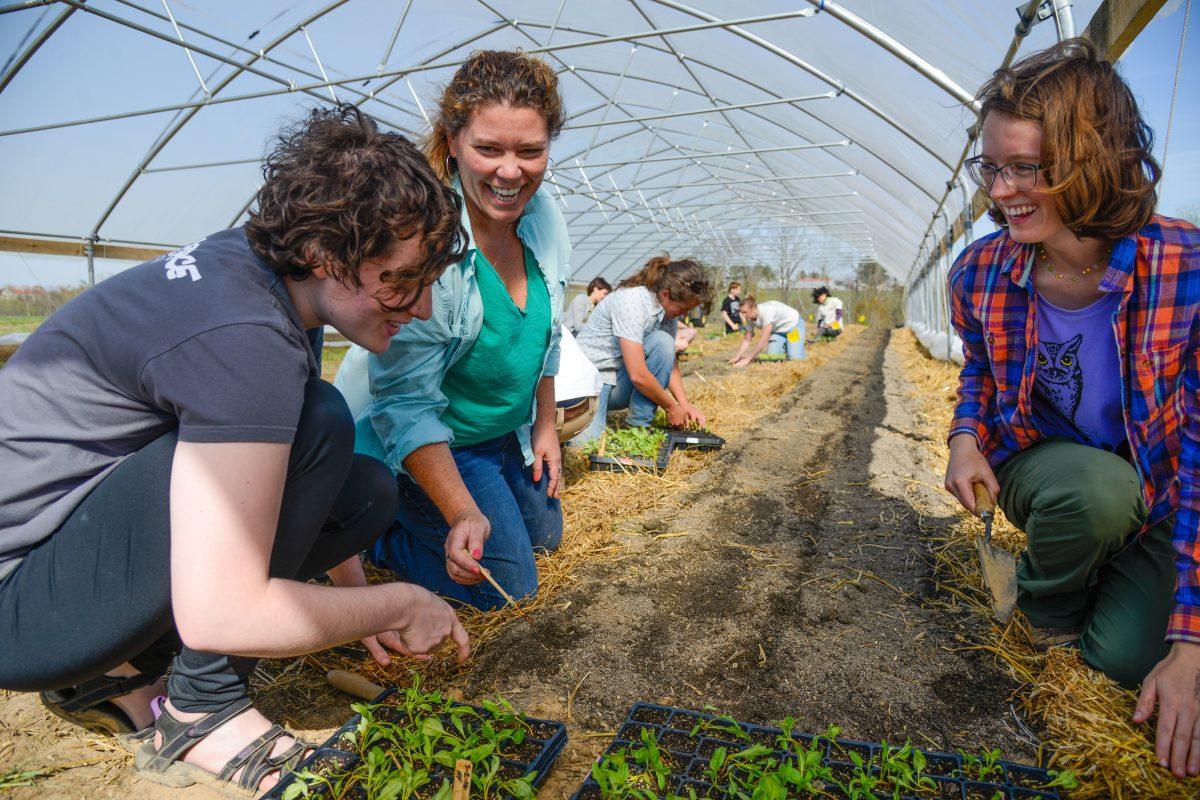Starting as a place for agricultural students to get a hands-on education in 2005, NC State’s Agroecology Education Farm has since expanded to developing its own major and selling produce in a local grocery store.
In 2013, the partnership between the Agroecology Education Farm and NC State Dining began, helping place fresh and local produce in dining halls and extending the education of agriculture to many more students on campus.
Michelle Schroeder-Moreno, director of the Agroecology Education Farm, said that NC State has about 34,000 students, and dining halls produce around 52,000 meals a day. The maximum yield the farm has produced is about 10,000 pounds, which is less than the amount of food the dining halls use per growing season.
According to Alison Reeves, the Agroecology Education Farm manager, the farm typically refrains from producing food that will go to waste. This is achieved through a working relationship between Reeves and the university chefs.
“The chefs in dining are really great in using what we bring them,” Reeves said. “They have really highlighted the use of the ‘ugly vegetables,’ the produce that doesn’t look so great but is still very tasty.”
Schroeder-Moreno said that since the produce in American grocery stores must meet a certain size and or width, many of these ‘ugly vegetables’ do not make it to the shelves for consumer purchase. The unconventional vegetables are typically thrown away, contributing to the 40 percent of food that is wasted in the U.S.
To avoid wasting any produce from the farm, Reeves and the university chefs have in-depth discussions, analyzing what produce is useful for them and what’s popular in the dining halls
“Usually around this time over the winter, I am planning out for the year and ordering seeds,” Reeves said. “After, I will email the university chefs with all the produce I have and when I could possibly bring it into dining. The chefs have the ability to pick and choose from the ordering form, and it usually is all gone by the end.”
Besides NC State dining halls, the Agroecology Education Farm also partners with the NC State Alumni Club, the golf course and The Oval on Centennial Campus, according to Reeves. However, since Fountain Dining Hall has a high volume of consumers, Fountain uses most of the farm’s produce.
According to Schroeder-Moreno, the farm’s relationship with NC State Dining is very productive and offers support for many projects and technological needs, like the hoop house, which helps the farm produce earlier and later in the semester. The resource is vital, controlling the height of production over the summer when many students are not on campus to consume the produce.
In addition, two summers ago, Dining sponsored the development of a post-harvest teaching pavilion where produce is washed and refrigerated before it goes to the dining halls. Schroeder-Moreno said, the pavilion is very special to the farm because it was designed and built by architecture students in the summer Design + Build Studio.
According to Reeves, the Agroecology Education Farm also produces food for big dining events on campus like All Carolinas and Farm Feast, which stress the consumption of local food. Over 3,000 students attend these events each year.
Schroeder-Moreno expressed how valuable and important it is that NC State Dining works with and buys from local North Carolina farms.
“Not a lot of other land-grant universities are doing something like this, and it makes the most sense,” Schroeder-Moreno said. “We are a great university. Our mission is to educate, discover and support our community, so supporting our farming community is a win-win.”








